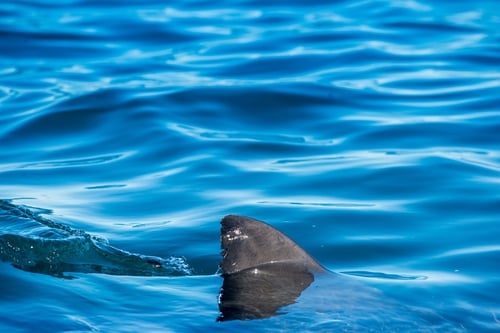The 1.5 metre long blue shark had first been spotted in the shallows of beaches around Magaluf on Saturday sparking a hunt by emergency services.
WATCH: Video of the shark
Civil Guard patrols and Civil Protection workers monitored the area occasionally ordering beaches to be closed when the shark, known as a tintorera in Spanish, was spotted.
It was finally caught on Sunday afternoon and discovered to have a serious head wound caused by a harpoon spear so was euthanized by experts from the Palma Aquarium.
The fish had caused panic in the water after swimming dangerously close to bathers, including young children on inflatibles, and led to authorities ordering everyone out of the water.
Holidaymakers posted pictures of the shark swimming in shallow waters while swimmers raced to the shore.
Yup, that's a shark! Never seen a beach clear so quickly! #illetes #illetesbeach #shark #jaws pic.twitter.com/qUjfPQS1Bc
— Tim Prottey-Jones (@TimProtteyJones) June 24, 2017
The story made the front pages of British tabloids.
La tintorera de Mallorca, en portada a part de la premsa sensacionalista britànica pic.twitter.com/LHknXMsAXw
— Sergi Mulero (@sergimulero) June 25, 2017
Blue sharks are one of the most common sharks in the Mediterranean but rarely appear close to shore and pose little danger to humans.
However, marine experts believe this shark became disorientated after being injured.
Last summer in Elche, on Spain's eastern coast, a man was bitten on the hand by a blue shark.



 Please whitelist us to continue reading.
Please whitelist us to continue reading.